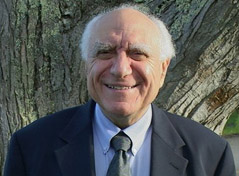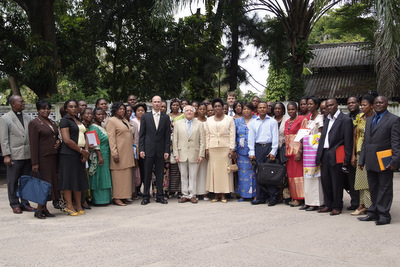 AL PESSO, THE CO-FOUNDER OF PBSP, OFFERS TWO-DAY MODULAR TRAINING WORKSHOPS ON A VARIETY OF PBSP THERAPEUTIC TECHNIQUES WHICH CAN BE UTILIZED BY THERAPISTS AND HEALTH CARE PROFESSIONALS IN CONJUNCTION WITH THEIR EXISTING MODES OF PSYCHOTHERAPY.
AL PESSO, THE CO-FOUNDER OF PBSP, OFFERS TWO-DAY MODULAR TRAINING WORKSHOPS ON A VARIETY OF PBSP THERAPEUTIC TECHNIQUES WHICH CAN BE UTILIZED BY THERAPISTS AND HEALTH CARE PROFESSIONALS IN CONJUNCTION WITH THEIR EXISTING MODES OF PSYCHOTHERAPY.
Location: Boston, MA / Cost: $350 per workshop
Registration Requirements: Participation is limited to licensed or certified social workers and mental health professionals who have a masters degree or higher. / CE Credit & CEUs: Pending.
PBSP BODY EXERCISES MODULE
PBSP Body & Spatial Sensitization Exercises can be used as diagnostic tools and treatment techniques. The exercises designed to be used for diagnostic purposes help clients to surface and identify more powerful and accurate emotional truths than mere verbal speculation can produce. The exercises designed as treatment techniques help clients gain consciousness of the sources of emotionally disturbing states and impulses that register in their bodies. What clients report in therapy sessions about their emotional and psychological states of mind is usually a confabulation having little to do with the true source of their feelings. PBSP Body & Spatial Sensitization Exercises provide therapists with ways to help clients get in touch with and discover the triggers of emotional states that have registered in the body somatically. Participants will learn techniques to discover and interpret emotional information coming from the body and exercises to offer clients that utilize the body as a way to master and control those disturbing emotional reactions. (December 8 – 9 in Boston, MA) Click here for more information and to register.
PBSP HOLES IN ROLES TECHNIQUE MODULE
Learn about, experience, and practice an entirely unique and innovative system with a comprehensive theory to: a) reduce somatic overload of anxiety, panic, and distress states; b) overcome resistance to healing; and c) deal with negative transference from clients. When primary caregivers tell stories to children — who are not yet cortically bounded and have not yet reached emotional maturation — about something hurtful or painful that happened in the past to them or to members of their kinship circle, religion, or tribe/clan, the child unwittingly and unconsciously makes movies somewhere in the back of their minds where they personally provide the caretaker with whomever would have provided the missing justice and satisfaction of essential needs. The earlier in life that people hear such stories, the more unbounded their emotional and body reactions will be. When a child perceives a gap in the life of a caretaker, they feel distress and part of their persona develops to fill that gap. If this innate desire for justice is exercised too early before a child’s maturational needs are met and before they are bounded cortically, they develop an exclusive justice and a sense that they are the one and only healer (something akin to feeling like the Messiah or a Savior). As a result of unconsciously experiencing themselves as the ‘The One and Only,’ the two fundamental forces of life, aggression and sexuality, break loose leading to immense somatic overload. With PBSP Holes In Roles technique the primary nuclear forces of life, the capacity to create (sexuality) and the capacity to destroy (aggression), can be harnessed and therefore modulated resulting in greater comfort and fruition than can be achieved through any other therapeutic approach. In addition, this technique helps clients to step out of the role of Messiah and become more collegial and collaborative in life. Using PBSP Holes In Roles technique also dramatically reduces resistance to healing and shortens the length of therapy. (December 11 – 12 in Boston, MA) Click here for more information and to register.
PBSP TRAUMA TREATMENT TECHNIQUES MODULE
Trauma is an event that breaks the boundary between the self, the outside world, and the inner world. It is a forceful entry — physical, sexual, or emotional — into the self without choice. PBSP offers a set of powerful theories and techniques utilizing the body as well as language and imagery to provide clients with healing from trauma by strengthening an internal pilot that can regain control of their internal and external worlds. In this module, participants will have the opportunity to learn, experience, and practice a variety of PBSP Trauma Techniques that can be utilized for different aspects of the traumatic experience. (December 15 – 16 in Boston, MA) Click here for more information and to register.
PBSP MICROTRACKING TECHNIQUE WITH WITNESS VOICE FIGURES MODULE
In this module participants will learn the theory and techniques of PBSP MicroTracking using Witness and Voice Figures and have the opportunity to experience and practice that technique as well. Present consciousness is a tapestry woven out of threads of memory. With the PBSP MicroTracking technique one can help clients discover the history and foundations of present consciousness and their emotional states and behavior. PBSP MicroTracking is akin to mindfulness in that it helps clients become more conscious of and gain perspective about how they feel and think without being so immersed in those states. It also reinforces the therapeutic alliance and a produces a sense of gratitude toward the therapist without it resulting in having the therapist become the healer of the events of the past. Thus, a secondary benefit of this technique is that it reduces the incidence of transference. (Training Dates TBD)
PBSP MAKING NEW MEMORIES, REVERSALS, & IDEAL PARENTS TECHNIQUES MODULE
There is no universal reality; people see and react to the present through the lens of personal memory. Individual consciousness of the present is based on: a) genetic memory, b) autobiographical memory, and c) significant stories of family and tribal events. We are born with an anticipation of an optimal unfolding and satisfaction of maturational needs. When that history is satisfied properly though anticipated kinship interactions, the body/brain releases rewards of pleasure in the present and hope for the future. When it is unsatisfied and frustrated, those needs do not disappear and we are under the influence of our autobiographical memory of the frustration of those genetic maturational expectations which produces pain, frustration, despair, and a lessening of hope for the future. The goal of this set of PBSP therapeutic techniques is to provide clients with new symbolic memories postulated in a ritualistic fashion as if they had happened in the past so that they will influence and improve how they experience the present and anticipate the future. In this module participants will learn the theory underlying these PBSP techniques and have the opportunity to both experience and practice the techniques themselves. (Training Dates TBD)
PLACEHOLDERS, PRINCIPLES, POSSIBILITY SPHERES, AND STAGES & SCREENS TECHNIQUES MODULE
The purposes of this set of techniques are: a) to awaken and include a client’s pilot, i.e. the higher cognitive aspects of their brain, so that they can look at all their associations and memories without being overwhelmed by them; and b) to distinguish when they have transferred or projected feelings associated with one person onto another person, including the therapists themselves. These techniques can be particularly valuable in couples therapy to help partners realize when they have projected associations with their parents or other significant figures onto each other and to help them disengage those associations. Participants in this module will learn the theory underlying this set of techniques as well as having the opportunity to experience and practice them. Participation in this module is restricted to therapists who are currently enrolled in or have completed PBSP certification training. (Training Dates TBD)



 AL PESSO, THE CO-FOUNDER OF PBSP, OFFERS TWO-DAY MODULAR TRAINING WORKSHOPS ON A VARIETY OF PBSP THERAPEUTIC TECHNIQUES WHICH CAN BE UTILIZED BY THERAPISTS AND HEALTH CARE PROFESSIONALS IN CONJUNCTION WITH THEIR EXISTING MODES OF PSYCHOTHERAPY.
AL PESSO, THE CO-FOUNDER OF PBSP, OFFERS TWO-DAY MODULAR TRAINING WORKSHOPS ON A VARIETY OF PBSP THERAPEUTIC TECHNIQUES WHICH CAN BE UTILIZED BY THERAPISTS AND HEALTH CARE PROFESSIONALS IN CONJUNCTION WITH THEIR EXISTING MODES OF PSYCHOTHERAPY. 






You must be logged in to post a comment.